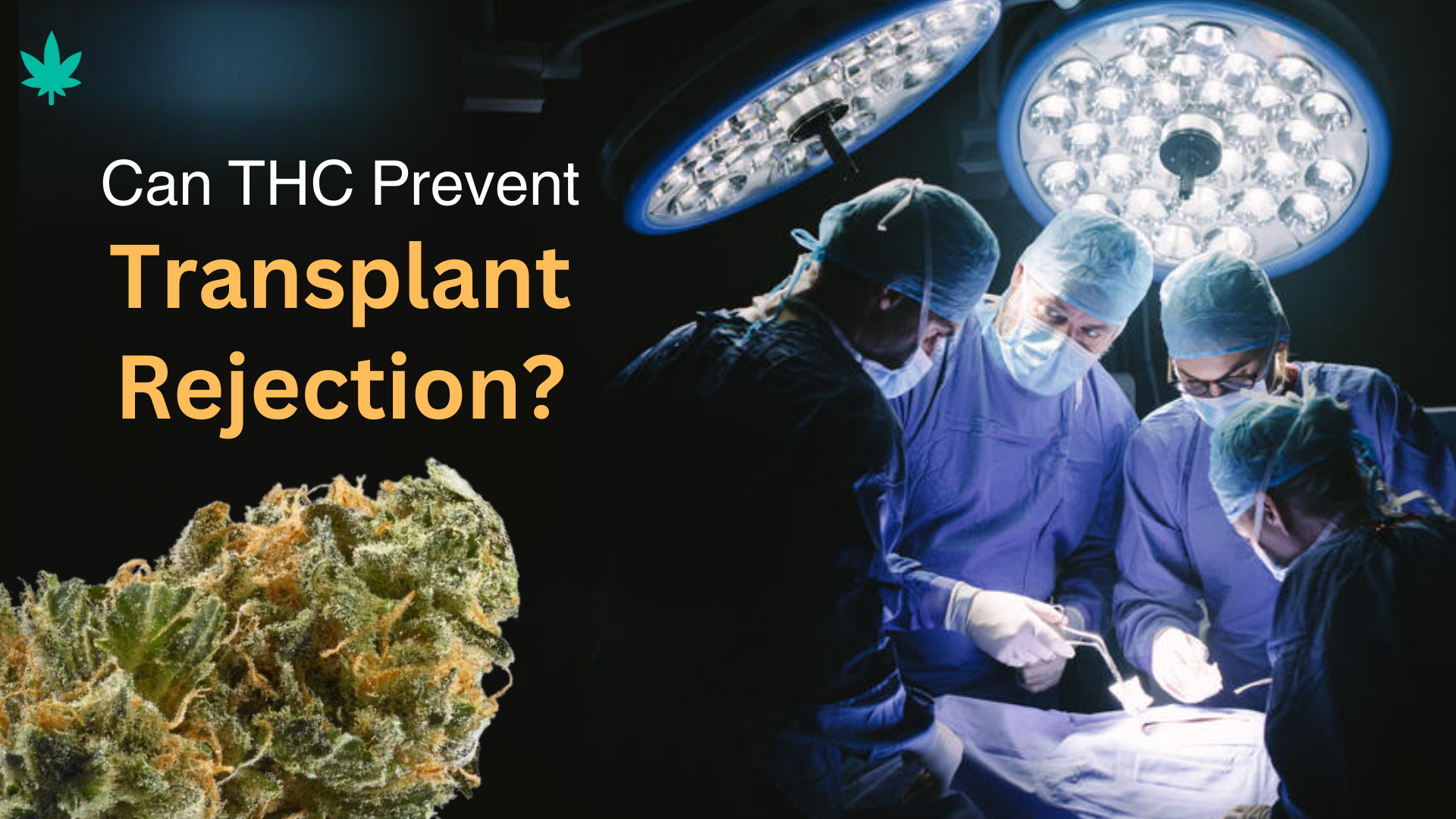Understanding Transplant Rejection: A Complex Challenge
Organ transplantation is a life-saving procedure, but the body’s immune system often perceives the newly introduced organ as a foreign invader, leading to transplant rejection. This complex process involves the immune system’s attack on the transplanted organ, jeopardizing the overall success of the procedure. While immunosuppressive medications are commonly used to mitigate rejection, the search for alternative or complementary approaches, such as cannabinoids, is gaining attention.
The Role of THC: A Potential Immunosuppressant?
Tetrahydrocannabinol, or THC, is renowned for its psychoactive effects, but recent research suggests it may have immunosuppressive properties. Studies have indicated that THC can modulate the immune response, potentially reducing the risk of rejection by suppressing the immune system’s aggressive reaction to the transplanted organ. While this is an exciting prospect, further research is needed to fully understand the intricacies of THC’s role in preventing transplant rejection and to establish safe and effective protocols.
CBD's Counterbalance: A Harmony of Cannabinoids
CBD, another prominent cannabinoid found in cannabis, has gained recognition for its anti-inflammatory and calming effects. In the context of organ transplantation, CBD’s potential lies in its ability to counterbalance THC’s psychoactive properties while offering additional anti-inflammatory support. The interplay between THC and CBD, known as the entourage effect, could be a key factor in harnessing the therapeutic potential of cannabinoids for transplant patients.
Hemp Seed Oil: A Nutrient-Rich Companion
The Landscape of Hemp Oil in Thailand: Exploring CBD's Legality
Navigating the Research Landscape: A Call for Further Studies
Realizing the Potential: THC, CBD, and Transplant Medicine
The potential role of THC and CBD in preventing transplant rejection represents an exciting frontier in the evolution of medical cannabis research. As researchers delve deeper into the molecular mechanisms and therapeutic applications of cannabinoids, the hope is to unlock new avenues for improving the success rates of organ transplantation and enhancing the quality of life for transplant recipients.
A Promising Path Forward
Frequently Asked Questions
Some preclinical studies suggest that THC, the psychoactive compound in cannabis, may possess immunosuppressive properties that could potentially help prevent transplant rejection.
If proven effective, THC could offer a novel approach to reduce the need for immunosuppressive drugs post-transplant, which often have side effects and risks.
Factors include strain rarity, cultivation methods, and local market dynamics.
While some animal studies show promising results, there is limited clinical evidence in humans. Further research is needed to understand THC’s efficacy and safety in this context.
THC’s psychoactive effects, potential for addiction, and impact on cognitive function could pose risks, particularly in vulnerable transplant recipients.




